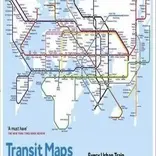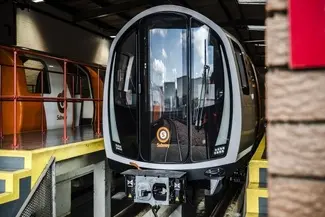Airline-shipper relations need rethink, says Unisys expert

Airlines and their customers will have to forge new style alliances, predicts a Unisys industry expert.
Venkatesh Pazhyanur, senior industry director of freight solutions at the global IT firm, predicts that there will be strategic alliances between airlines and big-volume shippers such as postal authorities, online retailers, global distributors and supply chain management companies.
He believes that with cargo capacity potentially increasing faster than demand due to extra passenger flights and larger aircraft, capacity management has become the number one challenge for airlines.
He said: “In this environment of unconstrained capacity, the traditional approach to yield management will not work as airlines may dump cargo space onto the market, creating a price war. Unisys predicts a fundamental move to longer-term revenue optimisation based on strategic alliances between airlines and organisations with large ongoing delivery requirements.”
This will require airlines to provide their alliance partners with transparent real-time access to available capacity and predictive analytics to determine best routes based on speed, reliability and cost.
Visibility will also extend to the “last mile”, to consumers, with mobile apps to allow the final recipient to be able to track the approach of their delivery – similar to how consumers currently track an approaching taxi on Uber.
Pazhyanur added: “The cargo industry needs to embrace disruptive technologies from the consumer world, including Internet of Things, digital assistants and drones, to increase efficiency and meet customer expectation for greater transparency throughout the supply chain,”
He said that the Asia Pacific air cargo industry is growing and being transformed by rapidly increasing capacity supply on passenger flights, and the shift to business-to-consumer small parcel shipments as a result of e-commerce.
IATA expects the number of air passengers globally will almost double between 2016 and 2035, while the popularity of e-commerce is changing the nature of cargo shipments, increasing the number of small parcels. IATA predicts that volumes will grow 5% annually in mature markets and 17% in China.
Pazhyanur continued: “Smart warehouses will become even smarter, drones will finally take off in the cargo supply chain – but inside the warehouse, and new alliances between airlines and global distributors will enable longer term capacity management.
"Much of the underlying technologies are already being used in other sectors – including the consumer world. But now, more than ever, cargo operators will be forced to embrace such innovation to be more efficient, nimble and proactive in an increasingly competitive and price conscious market."
To meet the growing demand for small parcel deliveries, warehouses will transform from a storage location, to a dynamic facility using new technology such as voice artificial Intelligence to give faster processing of shipments to generate a higher return on the real-estate investment. Unisys expects cargo operators to invest in converting machine commands to voice within the next three years.
But Pazhyanur predicted that the much-anticipated mainstream roll-out of drones to deliver parcels to the customer’s doorstep will be hampered by flight space restrictions, government approvals and privacy considerations. They will instead be used within warehouses to conduct inventory checks more often and more accurately, replacing the largely manual process.















![AIRBUS A380 [MORE THAN 600 PASSENGER’S CAPACITY PLANE]](https://cdn.tinn.ir/thumbnail/4jCp4EQvCU0b/IjHVrSYQrIAqIzXuTzADR7qLYX4idQT4nfq__26E5SCUPLMqfhWkWajvuO9Wfq1ql1TjV4dhkrHliNQU82kMpo2NNftT_NGEwHc9KXtN_rk731bmifa2IQ,,/airbus-a380-structure1.jpg)

Send Comment